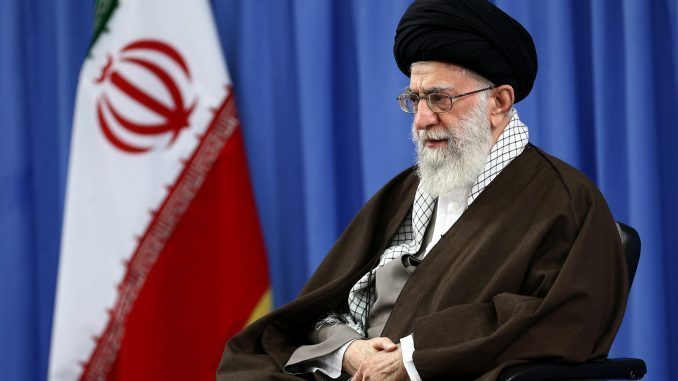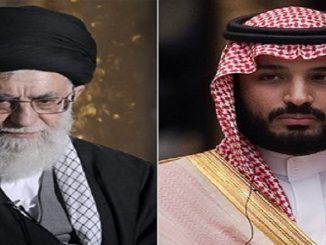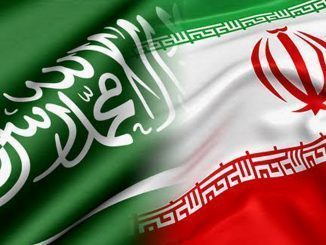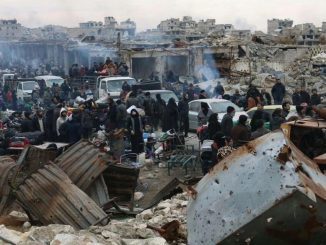
Iran’s supreme leader Ali Khamenei called on presidential candidates on Tuesday to champion economic self-sufficiency and distance themselves from the west, in a clear criticism of the current president Hassan Rouhani.
Iran made a historic nuclear deal with P5+1 powers in 2015, in which Tehran agreed to amend its nuclear output in order to lift all nuclear-related economic sanctions, freeing up tens of billions of dollars in oil revenue and frozen assets.
After lifting the sanctions, Iranian president Hassan Rouhani visited Europe and made deals that worth billions of dollars. European companies started looking for investment opportunities in the growing Iranian market.
Rouhani won the presidency in 2013 with the backing of mainly of young people and women. He promised to bring Iran out of its international isolation and create a freer society.
But many ordinary Iranians have lost faith in him because he has not been able to improve the economy despite the lifting of sanctions in January last year under the nuclear deal.
Doubts have been cast on whether Hassan Rouhani will be capable of pulling off a victory as he is facing escalating criticizing from his rivals, the hardliners, who have nominated various figured to run for the presidency.
Criticism by Khamenei
Fingers are being pointed at Rouhani from almost every direction. The blame has also been attributed to the technocrat team he chose who are mainly western-educated politicians, including Iran’s foreign minister, Javad Zarif.
One group, in particular, is more empowered and feels fully vindicated in pointing towards Rouhani’s failures: the hardliners. The hardliners are mainly the judiciary system, the Revolutionary Guard Corps, and its five forces, including the Quds Force and Basij, the Ministry of Intelligence, the Assembly of Experts and Ayatollah Ali Khamenei, the Supreme Leader.
“The candidates should promise to focus on national capabilities and domestic capacities to resolve the economic issues … rather than looking abroad,” Khamenei was quoted as saying by state TV as saying on Monday.
Rouhani’s main hardline rival in the May 19 election, influential cleric Ebrahim Raisi, has promised to create over 1.5 million jobs a year if elected. Another candidate, Tehran Mayor Mohammad Baqer Qalibaf, has promised to create 5 million jobs per year.
“We should bring manufacturing enterprises back to production … and for this, we do not need to look to foreigners,” Raisi, a close ally of Khamenei, said in the city of Birjand.
The senior cadre of the Revolutionary Guards has also become more unrestrained as they argue Rouhani’s agenda of rapprochement with the United States and the West has failed. Ayatollah Ahmad Jannati, the head of the assembly of experts that selects Iran’s supreme leader, lashed out at Rouhani’s failure to improve the economy as well.
Rouhani’s attempts to attract foreign investment on a large scale had not materialized. Khamenei previously rebuked Rouhani saying: “Attracting foreign investment is a positive measure but so far a very limited [number] of foreign contracts have materialized.”
“I call the new year a year of resistance economy, production, and employment,” Khamenei said in the pre-recorded video broadcast on state television in March for the new Persian year event.
Khamenei has coined the term “resistance economy” to describe measures to make Iran’s economy more self-sufficient, in contrast to Rouhani’s policy of seeking to open Iran to more international trade and investment.
The starkly different messages from the supreme leader and the president could polarize voters ahead of the presidential election.



